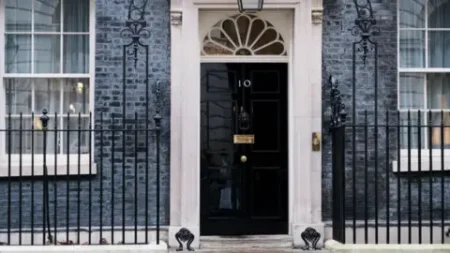In a recent public address in London, Nigel Farage, the leader of Reform UK, proposed a controversial plan to address the growing prison population in the United Kingdom. His proposal includes sending certain prisoners abroad to serve their sentences, which he claims would not only alleviate overcrowding but also significantly reduce crime rates across the country. Farage argues that these reforms would create around 30,000 additional prison spaces while costing approximately £17.4 billion over five years.
Farage’s plans extend beyond simply relocating prisoners. He also outlined intentions to construct five new prisons, return foreign nationals to their countries of origin, and recruit an additional 30,000 police officers. His rationale for these initiatives rests on the assertion that the UK is experiencing what he termed “societal collapse.” He believes that under a government led by Reform UK, crime rates could be halved within just five years.
However, reaction to his proposals has been swift and critical. The opposition Labour Party branded his policies as “unfunded,” while representatives from the Conservative Party accused Farage of talking tough without providing a concrete plan for implementation. They asked how he intended to finance the extra prison places and questioned the feasibility of his ideas.
When pressed on funding, Farage assured that tax increases would not be necessary and indicated that his party was dedicated to slashing significant amounts of public spending. He mentioned specific areas for budget cuts, such as the HS2 rail project and initiatives aimed at achieving net-zero emissions. Farage highlighted a staggering cost of crime to the UK economy, estimated at £170 billion, questioning: “Can we afford not to do this?”
The estimated budget for Farage’s proposals amounts to £17.4 billion, with an annual expenditure of around £3.48 billion. A considerable portion of this projected budget, approximately £10.5 billion, is earmarked for the proposed hire of more police officers.
To maximize prison capacity, Farage asserted that building five new low-security ‘Nightingale’ prisons on Ministry of Defence land with the assistance of the Army could yield 12,400 spaces. The term “Nightingale” refers to temporary hospitals established during the Covid pandemic, emphasizing the urgency of his proposal.
The plan includes not just building new facilities domestically, but also involves international agreements to transfer prisoners. Farage contends that transferring foreign prisoners back to their nations could open up further space within UK jails. In exchange, he suggested that the UK could accept British nationals currently incarcerated abroad. Reform’s initiative also points to the potential for sending serious offenders to serve time in countries such as Kosovo, Estonia, and even El Salvador, which has previously suggested accommodating prisoners from other nations.
Critics of this approach highlight potential human rights implications, particularly regarding El Salvador’s controversial human rights record. Additionally, previous UK government administrations have considered similar proposals but have deemed them excessively costly. Furthermore, there have been no active plans or announcements to pursue prison placements in Estonia, despite initial interest.
The UK’s prison system is under immense pressure, with warnings from the Prison Governors’ Association about overcrowding that could lead to early releases for inmates. The political response to Farage’s proposal has been mixed, with Labour’s Ellie Reeves condemning it as mere posturing rather than substantive policy-making.
To counter Farage’s initiatives, Labour announced plans to hire 13,000 more police officers and community support officers by the next election in 2029. Meanwhile, a Conservative spokesperson reiterated that they would focus on legislative changes to facilitate the deportation of foreign criminals rather than Farage’s uncosted propositions.
As the debate surrounding Farage’s proposals continues to unfold, the potential implications could play a significant role in shaping public policy and the future direction of the UK’s criminal justice system.










